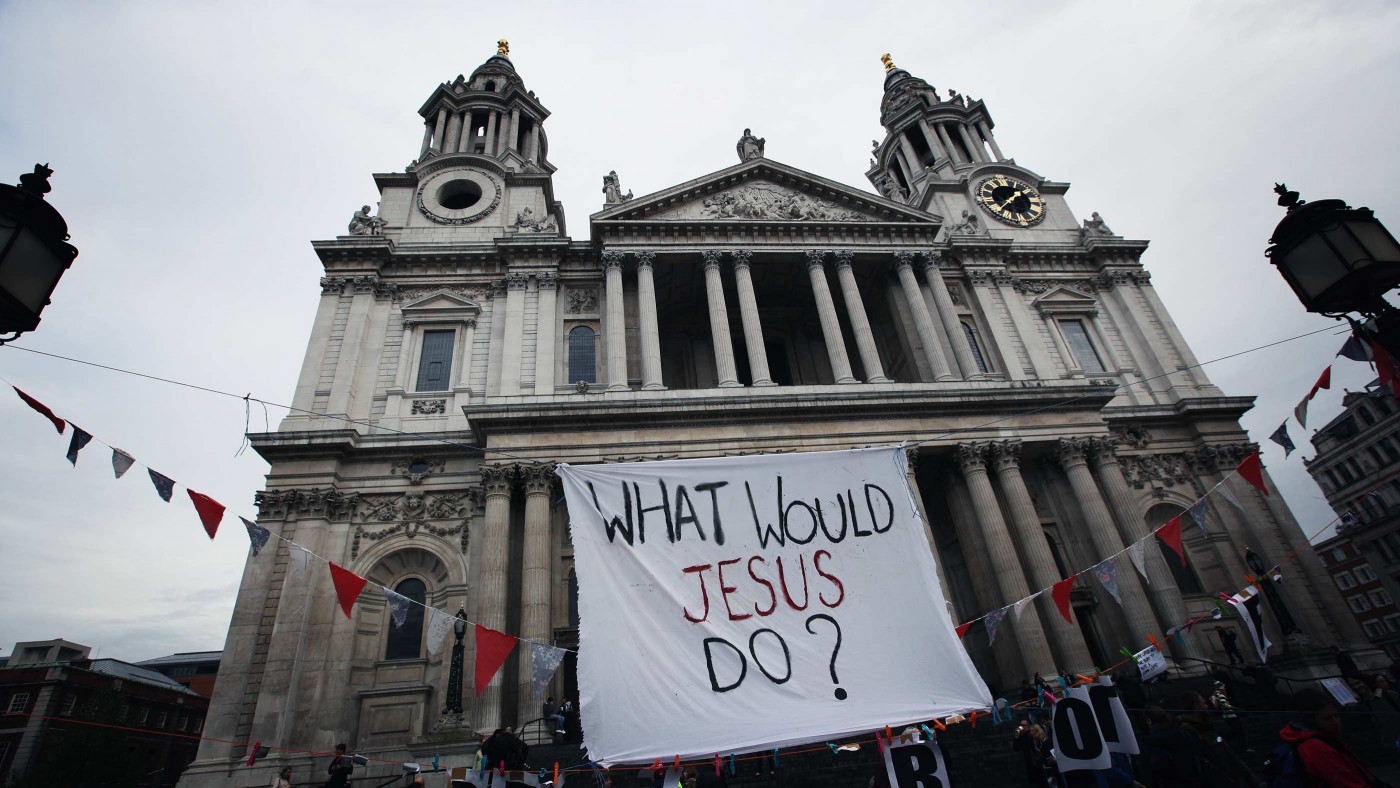Apologies if you are reading this abroad or if Thought For The Day on BBC Radio 4 means nothing to you. You’re lucky and I’m jealous because I wish I had never heard of Thought For The Day either. But as I live in the UK, and because I’m a fan of Radio 4, which is Britain’s premier radio station targeted at the middle classes, I’m usually tuned in by the time it comes on at 7.50am each morning.
The idea is supposed to be simple. At one point in the middle of the popular Today programme someone religious is given a few minutes to burble on, in theory providing us with a thought-provoking spiritual break from the BBC’s economics editor explaining the latest on what has gone wrong with the economy or political editor Nick Robinson telling us what has gone wrong with one or other of the main political parties. Thought For The Day is supposed to give the listeners a few moments to think about the big questions: Who are We? Why Are We Here? Do I need another slice of toast?
However, the worry is that too many of those chosen to present the religious slot now smuggle in standard issue lazy left-leaning anti-market nonsense under the banner of religion.
This morning represented a new low point even by the low standards of Thought For The Day. A trendy vicar called Giles Fraser (a Thought For The Day regular who preaches every week at The Guardian) turned his attention to Syriza and Greece’s debts.
His message was that debt is slavery. Greece should be forgiven the debts its useless governments ran up. Free Greece. It says so in the Bible, well almost.
Yes, the concept of debt forgiveness is long-established in special circumstances as lenders and policy-makers seek to ease the burden and (sometimes successfully, sometimes not) perhaps avoid another war. Germany – wrecked by the Kaiser and the German military and then the Nazis – has at several points enjoyed a measure of debt relief.
But the idea of making debt forgiveness the, ahem, “default position” is nuts. Implement Giles Fraser’s idea and the economy would collapse. Come to think of it, a collapse is probably what he is aiming for, so that capitalism can be replaced by a new system of which he and the comedian Russell Brand approve. The far-left approach has not been a wild success in the places it has been tried – Soviet Russia, Eastern Europe, Cuba and Communist China – but there are always people up for giving something like it another whirl.
Back to debts and Giles Fraser. In simple terms, how likely are we to behave sensibly if we know our debts are meaningless?
Debt in manageable quantities is often necessary for people trying to grow a business or buy house. In business, someone with a good idea, but lacking the capital to get it to market or to a wider range of customers, needs to access funding. Taking on some debt is a way of doing it. This combined with free markets, open competition, trade, robust institutions and the rule of law is one of the marvels of human existence. Under this system, prosperity has increased massively in recent centuries.
Of course, if people borrow unwisely, in excess, with little regard to what happens if they cannot afford it, they need to know there is a personal cost. Otherwise, I would take out unlimited debt today and spend it on suits, first growth claret and trips to Italy. This is the equivalent of what successive Greek governments did for decades. So why should Germans and others who have been sensible pay the price for Greek self-indulgence?
Even if debts are forgiven, what then? The Giles Fraser crowd is in favour of higher spending. Presumably, as well as hiking taxes dramatically (which would hit growth and then tax revenues) they would want to increase borrowing. In this way they would stick it to the markets by borrowing more from the, er, markets. Those in the markets – being able to read the papers and having an interest in getting any future loans paid back – would charge more to lend more or perhaps not bother. Result? An economic death spiral.
Thought For the Day is now the home of such bad ideas. Scrapping that slot on the Today programme won’t on its own turn the tide against the surge of anti-market sentiment that is given so much airtime in Britain. But it would be a start.


